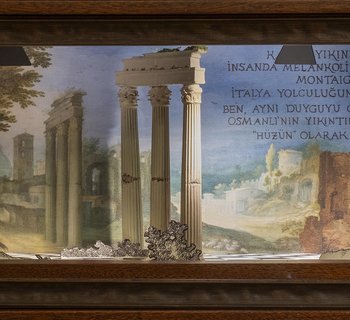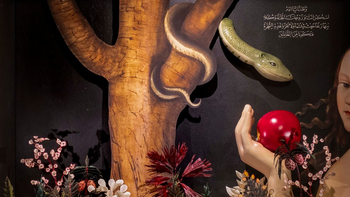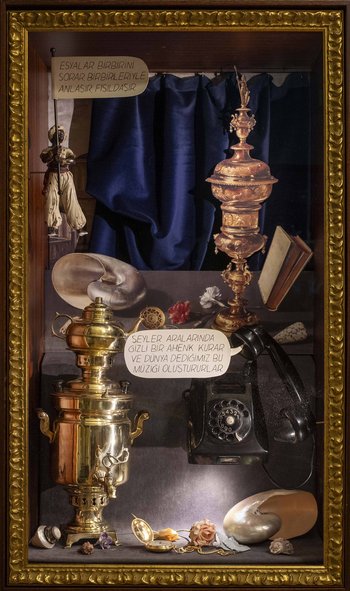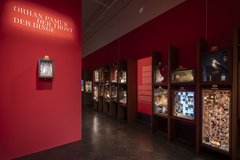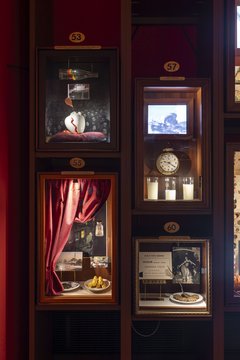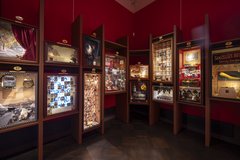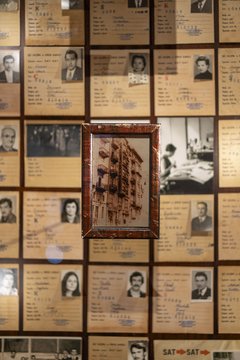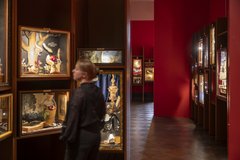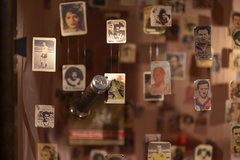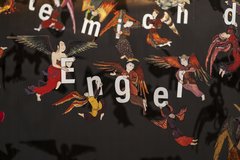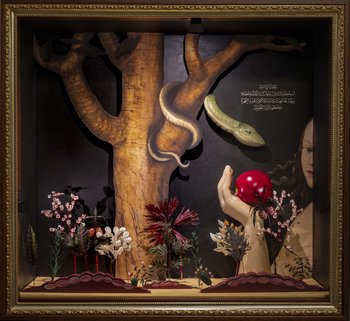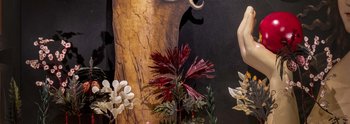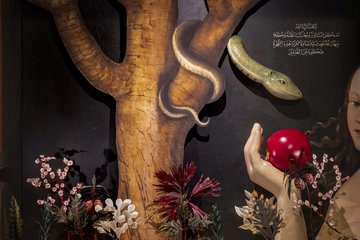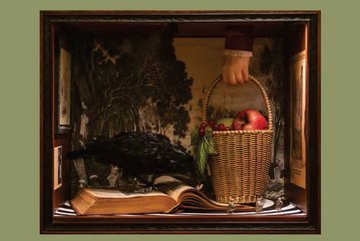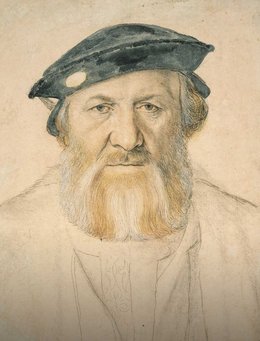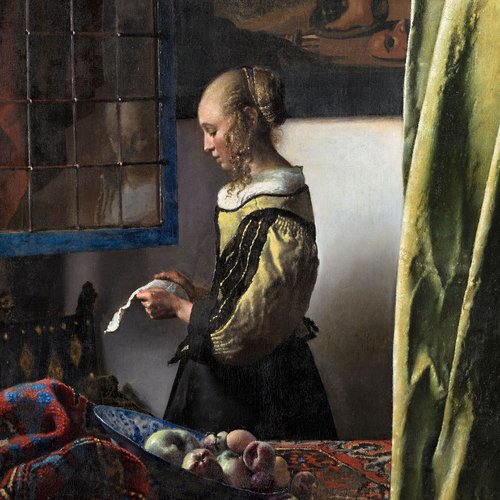Die Kunstsammlungen
Orhan Pamuk usually tells his stories focusing on objects. Museum of Innocence is one of his most prominent projects of this kind. In the novel published in 2008, an upper-middle class İstanbul man falls in love so dramatically with his beloved cousin, and he collects everything she touches, everything that they enjoyed together in happier times. When their love affair ends in tragedy Kemal creates a museum that exhibits thousands of objects reminding him of Füsun. At the same time, this collection evokes the texture of daily life in Istanbul between 1950’s and 2000’s.
